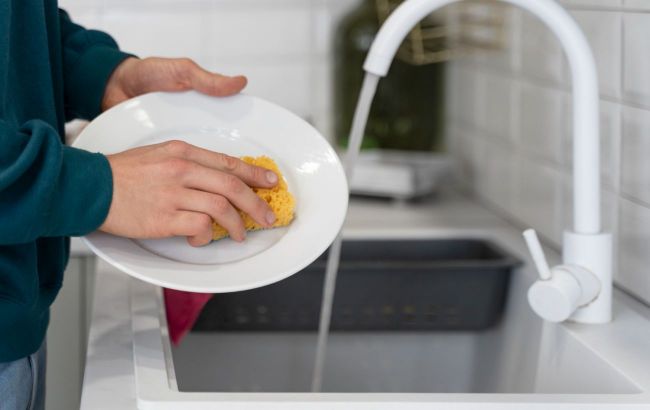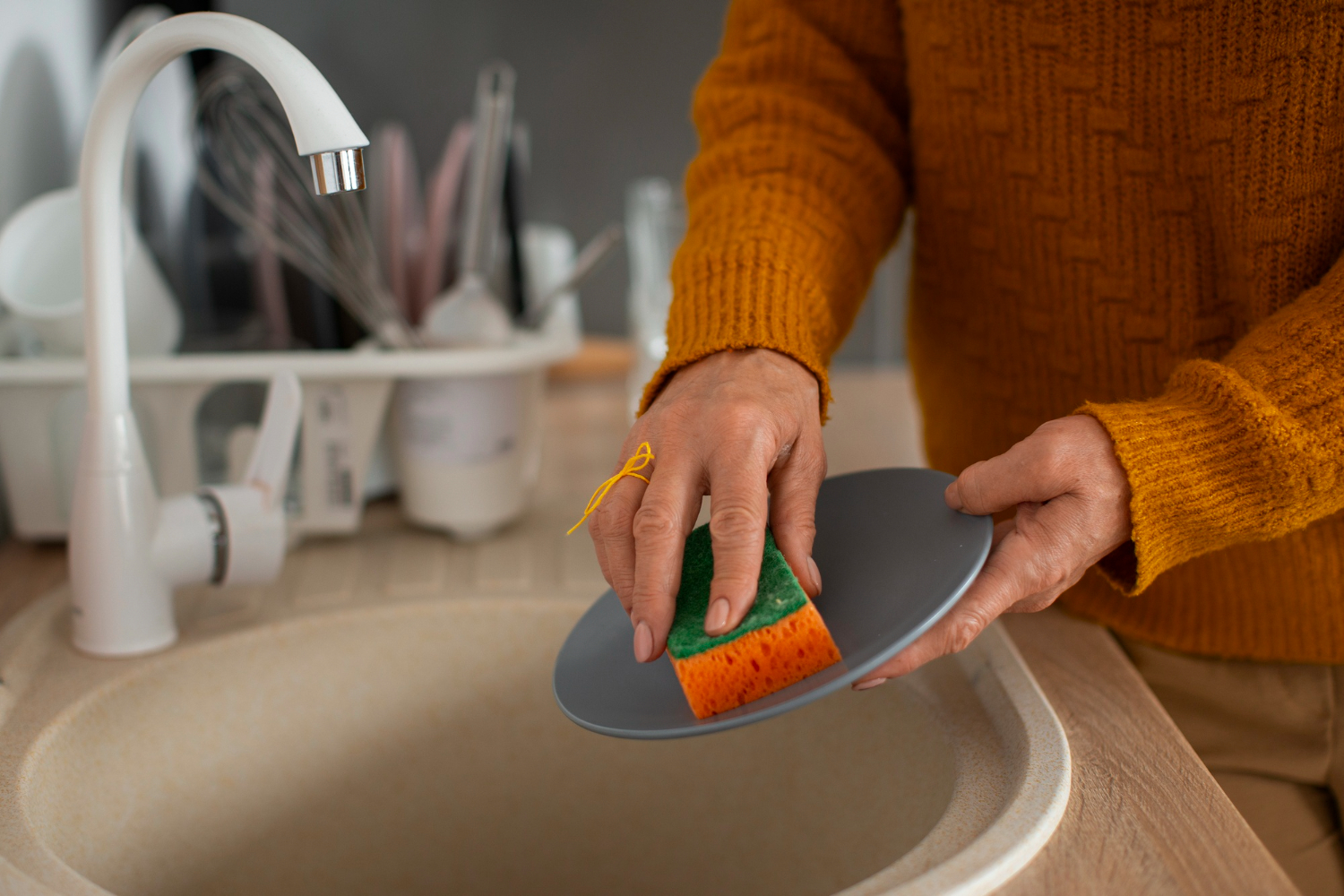8 dangerous mistakes everyone makes when washing dishes
 How not to wash dishes – why it’s dangerous (photo: Freepik.com)
How not to wash dishes – why it’s dangerous (photo: Freepik.com)
Washing dishes may seem like a simple routine, but it actually affects the cleanliness of your kitchen, hygiene, and even your well-being. If basic rules are neglected, dirt can accumulate even on freshly washed plates.
Martha Stewart explains how to wash dishes properly and what to pay attention to.
Dirty sponge
A dishwashing sponge can become a real breeding ground for bacteria if it’s not cleaned regularly. It easily accumulates harmful microorganisms like Salmonella, E. coli, and others.
To avoid this, rinse the sponge with hot water after each use. Also, disinfect it in the microwave and replace it at least every two weeks.
Pre-washing before the dishwasher
Washing plates before loading them into the dishwasher is a mistake. Modern detergents activate precisely in the presence of food residues. If you rinse everything off beforehand, the washing effectiveness decreases. Just scrape off large food pieces and leave the rest to the machine.
Using too much detergent
Using too much detergent doesn’t mean better cleaning. Excess detergent creates a film that’s hard to rinse off and can be harmful when in contact with food. Just a few drops are enough, especially when using a concentrate. The key is not to overdo it.
Washing dishes in a dirty sink
If there are food scraps or grease in the sink, washing dishes there is unsafe. Bacteria from the dirt can settle on freshly washed plates. Always rinse the sink before washing dishes. Also, don’t forget to clean the dishwasher itself once a month.

Often, we wash dishes without thinking about whether we're doing it right (photo: Freepik.com)
Incorrect water temperature
The water should be hot but not scalding. The optimal temperature is around 43°C–50°C for hand washing and up to 50°C in the dishwasher. Water that's too cold won't wash away grease effectively, while water that's too hot can harm your skin. Find a temperature that’s both comfortable and effective.
Poor choice of detergent
Not every detergent is suitable for washing dishes. Hand-washing detergents shouldn’t be used in dishwashers — they create excessive foam that can damage the machine. Conversely, dishwasher detergents are too harsh for your hands. Choose the right detergent for the specific washing method.
Wet dishes
Storing wet dishes is unsafe. Moisture encourages mold, bacteria, and can even damage kitchen furniture. Don’t stack dishes immediately after washing — let them dry first. Use a towel or leave them on a drying rack.
Leaving dishes in the sink
When we postpone washing dishes "for later," unpleasant odors develop, and there’s a risk of clogging the drain. Food residues dry up and become difficult to wash off. It’s better to wash dishes right away or at least rinse them to avoid problems. Cleanliness starts with consistency.
You might be interested in

